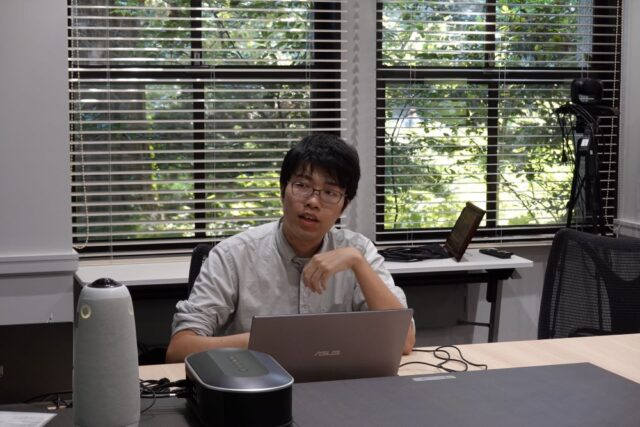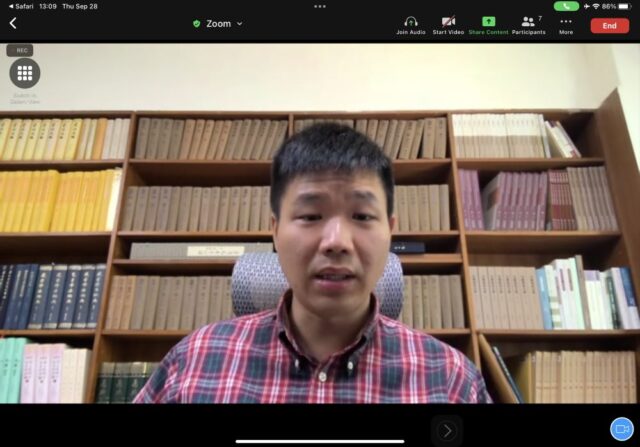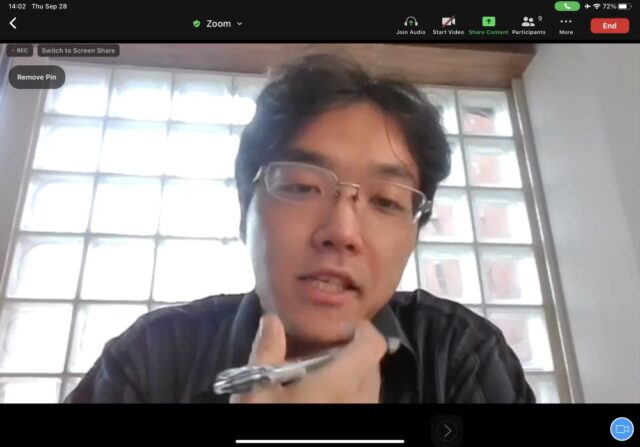The symposium, entitled as 對「天下」的批判性探討:當代中國思想・哲學與歷史學・國際關係論之間的對話(‘Tianxia’: dialogue between contemporary Chinese philosophy, history and IR studies), was held on September 28, 2023 from 1:00 pm to 4:00 pm. The symposium was in a hybrid online format, in English, and was open to the speakers and EAA staff, as well as to the general public. The blog author, who was also the organizer and discussant of the symposium, try to briefly introduce the conference.

This symposium was organized based on the author’s ideas as below. Currently, in the studies of international politics, many people raised criticisms that many theories were originated in the Western culture and was not able to be universally applied to other regions. Among them, the Chinese school presents the worldview of “Tianxia” as a universal concept by referring to the historical background of China. This worldview is strongly influenced by the study of contemporary Chinese philosophy and thought (e.g. neo-Tianxianism) by Xu Jilin and Zhao Tingyang. Recently in Japan, Kojin Karatani and others also try to introduce this view, and the EAA, the organizer of the conference, often holds related events. However, it should be needed to consider how valid the concept and historical interpretation of “Tianxia” is from an outside perspective. In this symposium, therefore, we decided to critically examine this question from the viewpoints of history and international relations theory.
The First presentation was made by Dr. Ling-Wei Kung (孔令偉), in the institute of history and philology, academia Sinica (台湾中央研究院歴史語言研究所). His research mainly focuses on relations between Chinese Empire and inner Asia, such as Mongol, Tibet and Manchu during the period of Yuan, Ming, and Qing dynasty . His presentation’s title was Beyond the Tianxia: Political and Religious Relations between the Qing Empire and Tibet (超越 「天下」 清帝國與西藏間的政教關係).
The next presentation was conducted by Mr. Mon Madomitsu (円光門), in the Graduate Schools for Law and Politics, the University of Tokyo. He mainly used the quantitative methods to argue about the role of worldviews in international relations. His presentation with the title of Can Tianxia philosophy solve the problem of the Other in International Relations? (天下思想能解決國際政治中的他者問題嗎?). He also held book session on 趙汀陽 『天下的当代性』 and made the presentation about discourse made by Chinese leaders in EAA before.
The two speakers have a discussion on the concept of “Under Heaven” from the angles of history and international relations theory, which are chronologically located at the two ends of the spectrum. The blog author, who mainly talked about the international history during the Cold War, like the Sino-Soviet Split, was the discussant and tried to bridge the two as the middle-ground of the spectrum.

The discussant firstly introduced the concept of this symposium and speakers, and then the presentations were made. Dr. Kung explained about the interaction between Manchuria, Mongol and Tibet at the age of the end of the Ming dynasty and the beginning of the Qing dynasty. Manchurian obtained the knowledge on Tibetan Buddhism through works in Mongolian and made full use of it for the construction of the Later Jin empire. The Confucianism, on the other hand, was not so appreciated. The Later Jin firstly built up relations with Tibet as the equal country, but after the formation of the Qing empire, changed her mind. She started to consider and treat Tibet as the tributary country. However, the Qing did not know exactly what happened in Tibet. Tibet also tried to mask the situation. In short, “Tianxia” by Chinese empire did not necessarily cover over Tibet and Sino-Tibetan relations at the beginning of the Qing dynasty.

Next, Mr. Madomitsu introduced the argument on the Chinese school in IR studies. Generally speaking, scholars in IRs critically talked about the concept of “All Under Heaven.” However, theories of IR studies are a quite “westernized” scholarship and “Tianxia,” which is rooted in the non-western culture, can have impacts on them. Whether this worldview will be accepted in the study of IR or not are deeply affected by the competition between great powers.
The discussant asked two speakers questions about the differences between the today’s interpretation of “Tianxia” and historical events. In other words, he inquired about the possibility of historical concepts to analyze the current situation. They answered the question from different viewpoints. Dr. Kung relatively hesitated to adopt this idea, but Mr. Madomitsu tried to draw attention to the possibility.
After that, questions were raised by audiences and discussion was made about for thirty minutes. They pondered about the gender issue and problem of Others in “Tianxia” thought.
Reported by: YOYOKYAMA Yuta (EAA Research Assistant)








